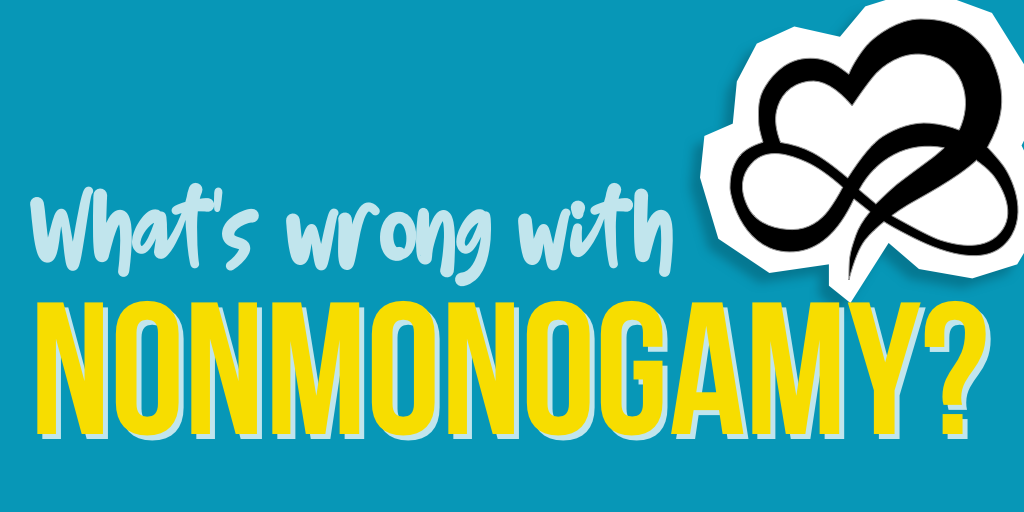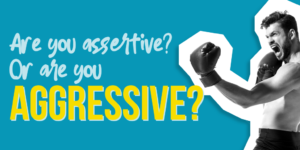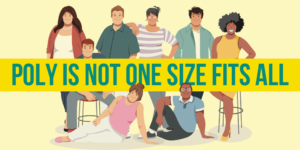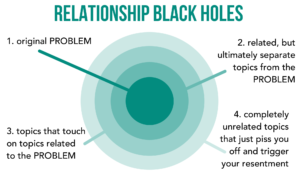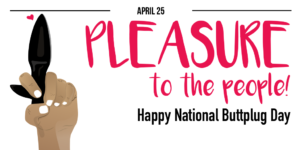The simple answer: The same things that are wrong with monogamy, only multiplied.
The more complex answer is, well, more complex.
You see, everything that can go wrong in monogamy can also go wrong in nonmonogamy but with more people and with potentially more angst.
Potentially.
Because really, in monogamy, I’ve experienced much of the same things as I’m about to present to you, and they can be catastrophic.
Let’s look at a few:
Jealousy
The obvious one. Interestingly, for me, I’ve experienced more jealousy in monogamous relationships than in all of my non monogamous relationships combined.
Maybe because in my nonmonogamous relationships, there is openness and honesty.
Because the first time I remember feeling jealousy was with my first boyfriend, when he came back from a trip to Germany. He was showing me photos and there was a beautiful girl in one. I KNEW instantly they had had sex. I asked. He denied it. I felt fear and loss. Deeply. It hurt me so much. He was lying to me and hiding what he’d done.
He eventually admitted it, over a year later, after I’d ended our relationship.
I already knew. And now I knew he was willing to lie to me to get something he wanted.
On the other side of things, I have been the target of jealousy many times, primarily in my monogamous relationships. I never cheated. Ever. And yet, I was yelled at, accused, called a liar and a slut, and treated badly for things I never did.
And I was told that my partners trusted ME, they just didn’t trust my masculine friends. WTF?
Anyway, jealousy in nonmonogamy is a HUGE factor for many people in every kind of relationship. Even in friendships. Multiply that by love and by sex, and you have a very big potential problem.
Communication
Frankly, we are not taught how to communicate well with other humans in relationships. And this shows up the deeper into our relationships we get.
The more love and more sex we have, the more communication is required to keep things going well. And, well, in nonmonogamy, we might be having a lot of love and a lot of sex (or our partners are), and well, we are often not prepared with the tools we’ll need to communicate well.
Or even to hold/tell our own truths (see above, in jealousy).
Which leads to misunderstandings, jealousy, hurt, and more.
Lack of personal boundaries
This is one of my big soap boxes.
Personal boundaries are, to me, the single biggest factor in creating a success full relationship. They are how we know where we end and others begin. Where we set our limits on how we interact and what we are willing to accept in our lives.
So few people do the work on personal boundaries before any relationship, even friendship, and the more intense a relationship (adding in love and sex, for example), the more pressure there is on our boundaries.
When there are multiple intense relationships, it’s easy for boundaries to get crossed or squashed, or stepped on, or ignored, because there is just SO MUCH going on.
Lack of personal accountability
In ourselves and others.
Most of us are not raised to be personally accountable. The media we are bombarded with every day is about how others treat us, and about how others push us around, and very rarely about how we allow ourselves to be treated by the people in our lives.
This makes it so much easier for others to shift blame for actions onto others—even actions within our relationships.
And when that happens, it makes us feel like other people—people not in our relationships—have control over how we can connect and love and spend time and…well, a lot of things.
This happens in monogamy. Every one of us has been in a relationship where someone said that they would miss a date or an important event because their [mother, brother, best friend, boss] told them they needed something from them. And it may have been true.
The issue is not that it happened, but that the partner put the blame on the other person, and did not simply say that they had a conflict, and deemed the other [whatever] more important or more fun.
This happened once in a while, and it’s OK. We’ve all done this.
When it happens regularly, though, it feels like you are no longer an important deciding factor in your own relationship. And that’s hard.
Now, imagine that in nonmonogamy, that other person is always another partner. And your mutual partner is constantly being pulled this way and that by others, never willing to take ownership of their decision making.
This is where resentments build up against other partners. Jealousies get out of hand. People then often try to “manage” their partners and their partner’s partners to feel some sort of stability and control over their own lives.
The problem is…
NONE of these things are wrong with nonmonogamy.
They are wrong with how we humans interact with each other. How we have learned unhealthy habit in creating and maintaining relationships. How we react to threats to our relationships.
And like I’ve said, they happen in monogamous relationships. Even friendships.
It’s a flaw in how we are taught to interact with others from a very young age, in how TV shows and movies present love and sex. In how our first relationships teach us about interaction.
And the only way to fix these things is to fix ourselves. To choose what we are willing to accept in our lives and what we are not, and to be accountable for those things.
But that’s really hard. It can take a lot of time to shift our perspectives to such a personally vulnerable view.
What are your thoughts?
What am I missing as far as problems in nonmonogamy?
Have you experienced these issues in your relationships (friendships, monogamous, nonmonogamous)? What have you done to change the experience?


